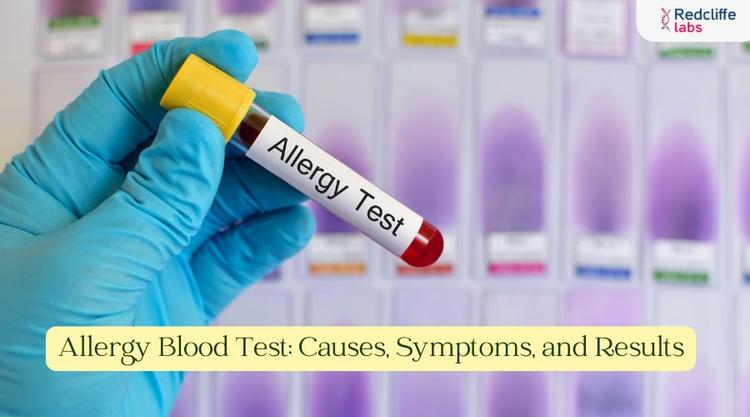Understanding Sinus Infections: Symptoms and Causes

Medically Reviewed By
Dr. Ragiinii Sharma
Written By Ritish Sharma
on May 4, 2023
Last Edit Made By Ritish Sharma
on Jan 7, 2025

If you've ever experienced the discomfort of a sinus infection, you know just how miserable it can be. From a stuffy nose and painful pressure in your head to a sore throat and fatigue, the symptoms can really take a toll on your daily life.
Sinusitis (sinus infection) is estimated to affect 17% of women and 10% of men yearly. Sinus infections are more common than you think. But have you ever wondered what causes a sinus infection in the first place? Or how to distinguish it from other common illnesses like the common cold?
Let's take a closer look at the symptoms and causes of sinus infection, so you can better understand what's going on in your body and how to get relief.
What is sinusitis (sinus infection)?
Sinusitis, or a sinus infection, is an inflammation of the sinuses, which are the air-filled cavities in your forehead, cheeks, and nose. Normally, these cavities are filled with air, but when they become blocked or filled with fluid, bacteria and other germs can grow, leading to an infection.
Sinusitis can be acute, which means it lasts for a short period, typically less than four weeks, or it can be chronic, lasting for longer than three months.
Viral infection often causes acute sinusitis, while chronic sinusitis can be caused by allergies, nasal polyps, or a deviated septum, among other things. Understanding the underlying causes of your sinus infection can help you find the most effective treatment and avoid future infections.
Common Symptoms of Sinusitis
Here are some common symptoms of a sinus infection:
- Stuffy or runny nose
- Thick, discolored mucus in the nose or throat
- Postnasal drip
- Coughing
- Pain, pressure in the forehead, cheeks, behind the eyes
- Fatigue
- Headache
- Fever
- Toothache
- Reduced sense of smell or taste
However, not everyone with a sinus infection will experience all of these symptoms. Additionally, these symptoms can be similar to those of other respiratory illnesses, like the common cold or allergies.
Sinus Infection Causes
Various factors can cause sinus infections; there are a few main causes to be aware of.
1. Viral infections:
The common cold and flu can lead to sinus infections by causing inflammation and blockages in the nasal passages.
2. Allergies:
Allergic reactions to things like pollen, dust mites, or pet dander can cause inflammation of the sinuses and lead to an infection.
3. Environmental factors:
Exposure to pollution, cigarette smoke, or dry air can irritate the sinuses and cause an infection.
4. Structural issues:
Structural problems with the nasal passages, such as a deviated septum, can make it difficult for mucus to drain properly, leading to sinus infections.
5. Nasal polyps:
These small growths in the nose lining can block the sinuses and lead to an infection.
6. Immune system issues:
People with weakened immune systems are more susceptible to sinus infections.
Is It a Cold or a Sinus Infection? How to Tell the Difference
It can be challenging to differentiate between cold and sinus infections, as both share similar symptoms. However, a few key differences can help you distinguish between the two.
- A cold typically lasts for a week or two, while a sinus infection lasts several weeks or months. If your symptoms persist for over two weeks, it may be a sinus infection.
- A cold often causes mild to moderate symptoms, such as a runny or stuffy nose, cough, and sore throat. A sinus infection, on the other hand, can cause more severe symptoms, such as intense facial pain and pressure, fever, and thick, yellow, or green mucus.
- While a low-grade fever is common with a cold, a high fever is usually a sign of a sinus infection.
- You may feel tired or run down with a cold but can still go about your daily activities. With a sinus infection, however, you may feel more fatigued and generally unwell.
Diagnosis & Treatment
Symptoms of sinus infection can cause discomfort & pain, but thankfully there are several ways to diagnose and treat a sinus infection.
Physical examination: Your doctor will examine your nose, throat, and sinuses for signs of inflammation or infection.
Medical history: Your doctor will ask about your symptoms, including how long you've been experiencing them and whether you've had sinus infections.
Allergy testing: If allergies are suspected to cause a sinus infection, an allergy test may be ordered to determine your allergies.
Imaging tests: In some cases, an imaging test like a CT scan or MRI may be ordered to get a closer look at the sinuses.
Treatment for a sinus infection may include antibiotics, nasal decongestants, and pain relievers. If bacteria cause your sinus infection, your doctor may prescribe antibiotics to help clear it up.
Be sure to take the full course of antibiotics, even if you start feeling better before you're done.
In severe cases or cases of chronic sinusitis, surgery may be necessary to remove blockages or correct structural issues in the sinuses.
While sinus infections can be uncomfortable and painful, early diagnosis and prevention can help manage the issue.
If you're experiencing symptoms that persist or worsen over time, you must talk to your doctor about a proper diagnosis and treatment plan. Additionally, allergy testing can help determine the root cause of your symptoms and guide treatment, so you can start feeling better and get back to your normal routine in no time.
At Redcliffe Labs, we offer a variety of allergy tests to help you identify the source of your allergies and find relief.
Don't let a sinus infection keep you down - take action today and get the help you need!



